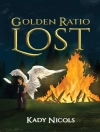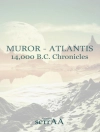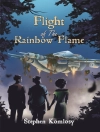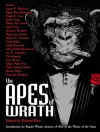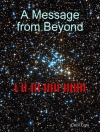In ‘All Around the Moon, ‘ Jules Verne continues the extraordinary adventure begun in ‘From the Earth to the Moon, ‘ weaving a rich tapestry of scientific imagination and narrative prowess. This sequel chronicles the journey of the Gun Club’s intrepid crew as they embark on a spectacular voyage to revisit lunar exploration. Verne masterfully combines elements of speculative science fiction with an engaging adventure story, employing a detailed narrative style that balances humor with the philosophical undertones of human aspiration in the face of the cosmos. His meticulous attention to technical accuracy invites readers to ponder the evolving relationship between humanity and the universe, emphasizing the era’s growing optimism in scientific progress. Jules Verne, often hailed as the father of science fiction, drew inspiration from the scientific advancements of his time, which fueled his fascination with exploration and adventure. Born in Nantes, France, Verne’s early exposure to the sea and travel profoundly influenced his work. His unconventional approach to storytelling, blending factual science with imaginative narratives, creates a dynamic reflection of the excitement and anxieties surrounding technological progress in the late 19th century. ‘All Around the Moon’ is a must-read for fans of science fiction and adventure alike. Verne’s evocative language and visionary concepts not only entertain but also provoke thoughtful reflection on humanity’s exploratory spirit. Whether a seasoned reader of Verne’s works or new to his narratives, this exhilarating journey will challenge perceptions and inspire wonder at the boundless possibilities that await us among the stars.
เกี่ยวกับผู้แต่ง
Jules Verne (1828–1905), renowned as one of the principal architects of science fiction as a genre, was a prolific French author whose imaginative works continue to enthrall readers worldwide. His literary career took on a remarkable trajectory with novels that merged adventure, technology, and prescient visions of the future. Verne’s writing is best characterized by its blend of authenticity and fantasy, a testament to his exhaustive research and boundless imagination. ‘All Around the Moon’ (French: ‘Autour de la lune’), a sequel to ‘From the Earth to the Moon, ‘ exemplifies his iconic style, combining scientific extrapolation with compelling narrative. In this novel, Verne not only takes the reader on a fantastical journey but also manages to predict several aspects of space travel that became reality over a century later. Influenced by the advancements in science and technology of the 19th century, Verne’s works such as ‘Twenty Thousand Leagues Under the Seas, ‘ ‘Journey to the Center of the Earth, ‘ and ‘Around the World in Eighty Days’ cemented his reputation as a writer uniquely capable of weaving education and entertainment. His foresight into the capabilities of mankind to explore realms beyond conventional boundaries has earned him the title of ‘Father of Science Fiction’ alongside H.G. Wells. Verne’s literary style has had a profound impact on both scientific speculation and the adventure genre, inspiring countless authors and inventors alike.


